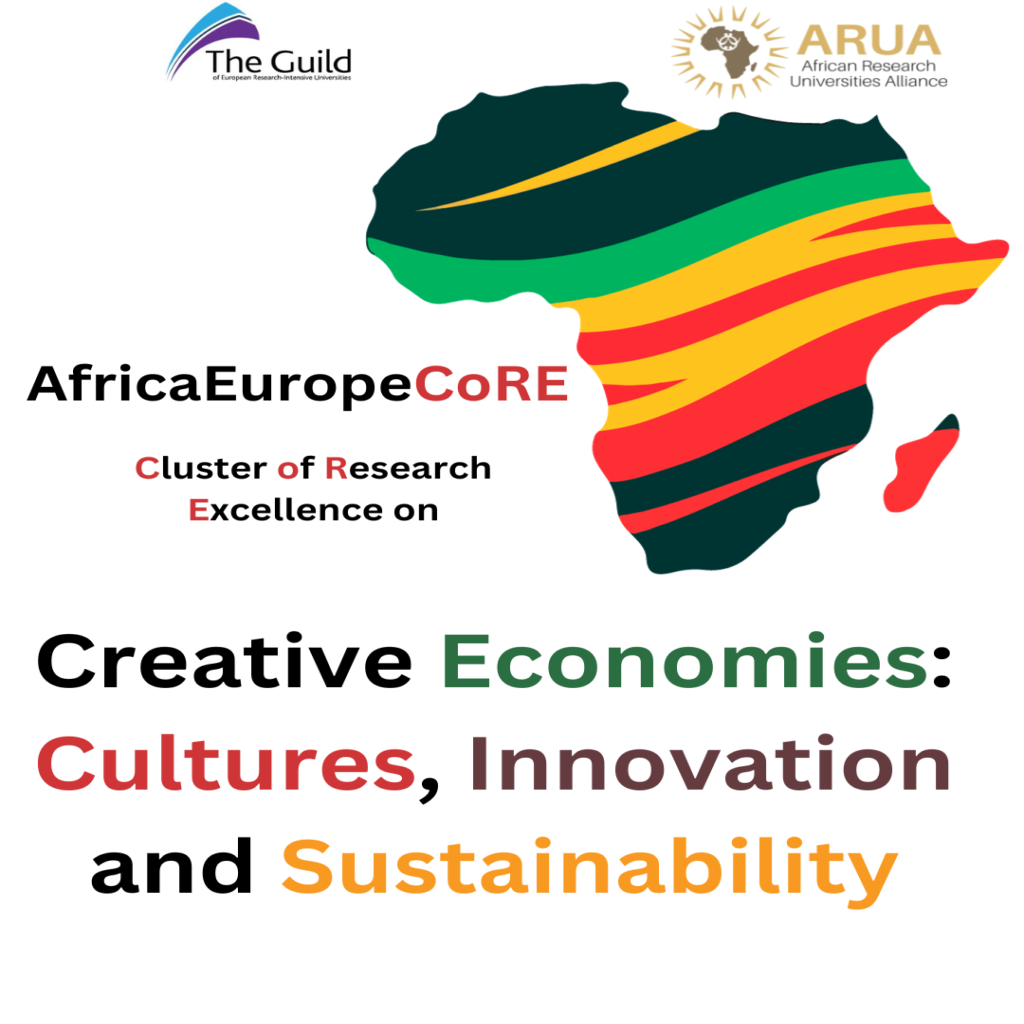The work of the AHSCE project is closing in the coming weeks, with a final report being published soon. However, the legacy and work of the past 15 months can continue as ARUA (The African Research Universities Alliance) and The Guild (The Guild of European Research-Intensive Universities) launched today three new Africa-Europe Clusters of Research Excellence (CoRE). This is a direct response to the formal launch of the AU-EU Innovation Agenda, which acknowledges the importance of research and education – including in the social sciences and humanities – for achieving the EU’s Global Gateway strategy and the AU’s Agenda 2063. The three new Clusters join the Africa-Europe CoREs bringing the total number of Clusters up to 20, now involving over 250 researchers in 60 Universities as well as research institutes.

The new CoRE on ‘Creative Economies: Cultures, Innovation and Sustainability’ aims to support the development of more equitable, innovative and sustainable creative economies, in a sector that has been recognised for its potential to contribute up to 10% of global GDP by 2030. Co-led by Duro Oni (University of Lagos), Jen Snowball (Rhodes University), and Roberta Comunian England (Department of Culture, Media and Creative Industries, KCL) and Eka Ikpe (African Leadership Centre, KCL), the Cluster brings together cultural policy organisations and university researchers from across Africa and Europe.
The new CoRE on ‘Creative Economies: Cultures, Innovation and Sustainability’ aims to support the development of more equitable, innovative and sustainable creative economies, in a sector that has been recognised for its potential to contribute up to 10% of global GDP by 2030. Co-led by Duro Oni (University of Lagos), Jen Snowball (Rhodes University), and Roberta Comunian (Department of Culture, Media and Creative Industries, KCL) and Eka Ikpe (African Leadership Centre, KCL), the Cluster brings together cultural policy organisations and university researchers from across Africa and Europe.
Prof. Comunian commented: “I am delighted the creative economies cluster has been approved. Recognising the value of all cultures and creative expression is the foundation of both economic and social development as well as international cooperation and I am looking forward to working with colleagues across Europe and Africa to deliver this new project”.
Commenting on the launch, Jan Palmowski (The Guild) said: “All three Clusters are committed to ensuring that scientific excellence, developed through equitable long-term research collaborations, will serve students, the economy, and policy alike. At this particular time, when European discourse about Africa is increasingly dominated again by migration and crisis, it is more critical than ever to show how Europeans and Africans can only progress by addressing our common challenges together, in real partnership; and this is what all three Clusters do”.
Ernest Aryeetey (ARUA) noted at the launch that “These three additional clusters are a good indication of the ambition of CoRE to present a more diversified portfolio of academic disciplines. They bring in more of the social sciences and humanities and provide an opportunity for greater interdisciplinarity in the work of our institutions. They reflect an essential departure from the status quo at many institutions and a readiness to be more creative and innovative. CoRE provides African and European universities a new opportunity to confront the challenges of our time differently and more purposefully”.
